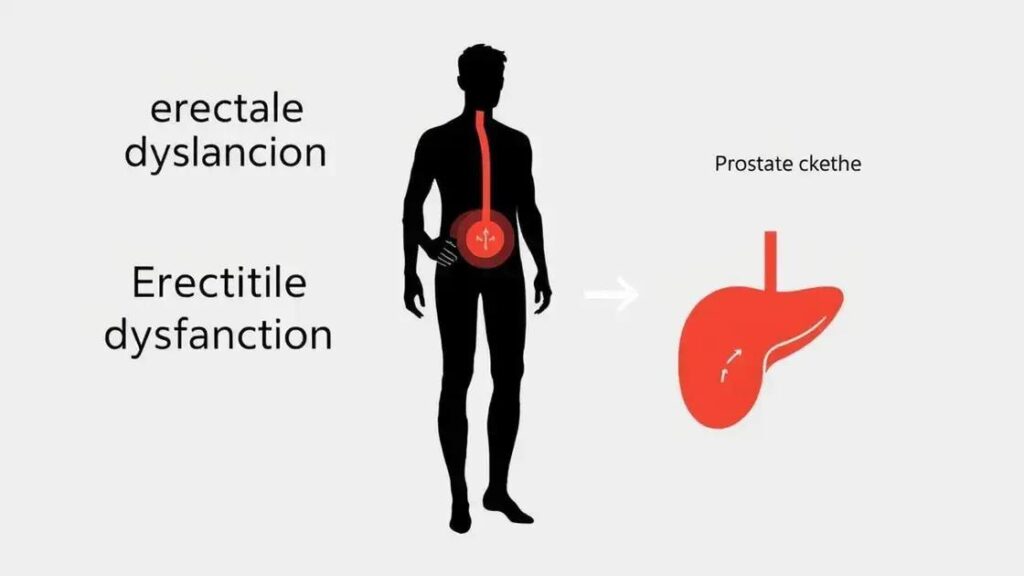Erectile dysfunction (ED) often interacts with prostate health, as conditions like benign prostatic hyperplasia and prostate cancer can lead to ED. Effective treatments for ED include medications, lifestyle changes, and therapies. Maintaining prostate health through a balanced diet, regular exercise, and avoiding harmful habits is crucial for overall well-being.
Understanding how erectile dysfunction interacts with prostate health is crucial for men seeking to maintain their overall well-being. Many individuals are unaware of the close relationship between these two health issues. In this article, we will delve into the implications of erectile dysfunction, how it connects to prostate health, and what steps can be taken to address these concerns. We’ll explore treatments, common causes, and lifestyle changes that can lead to better health outcomes.
Understanding Erectile Dysfunction

Erectile dysfunction (ED) is a common condition that affects millions of men worldwide. It is defined as the inability to achieve or maintain an erection sufficient for satisfactory sexual performance. Understanding erectile dysfunction starts with recognizing its symptoms and how it manifests in daily life.
Men experiencing ED may find it difficult to become aroused, have trouble maintaining an erection during sexual activities, or may not be able to achieve an erection at all. These symptoms can lead to significant emotional distress, affecting self-esteem and relationships.
Physical and Emotional Factors
ED can result from a combination of physical and psychological factors. Physical causes often include conditions such as diabetes, high blood pressure, or heart disease, while psychological factors may involve stress, anxiety, or depression. It’s essential to understand that both aspects can be interrelated; a physical issue can lead to emotional stress, which may exacerbate erectile dysfunction.
Prevalence of ED
This condition is often underreported. Many men feel embarrassed to discuss their experiences, which can lead to a lack of treatment and support. However, studies suggest that erectile dysfunction can occur at any age, although it is more common as men age. Approximately 40% of men experience some degree of ED at age 40, and this percentage increases with age.
The Importance of Seeking Help
It is vital for men experiencing symptoms of erectile dysfunction to seek medical advice. Early diagnosis and treatment can help relieve symptoms and improve quality of life. Healthcare professionals can conduct evaluations and recommend appropriate treatment options tailored to each individual’s needs.
Communication is Key
Open communication with partners about erectile dysfunction is critical. This creates an environment where both partners can discuss feelings and concerns, which can alleviate some of the emotional burdens associated with ED. Seeking counseling or support groups can also provide valuable assistance.
The Connection Between Prostate Health and ED
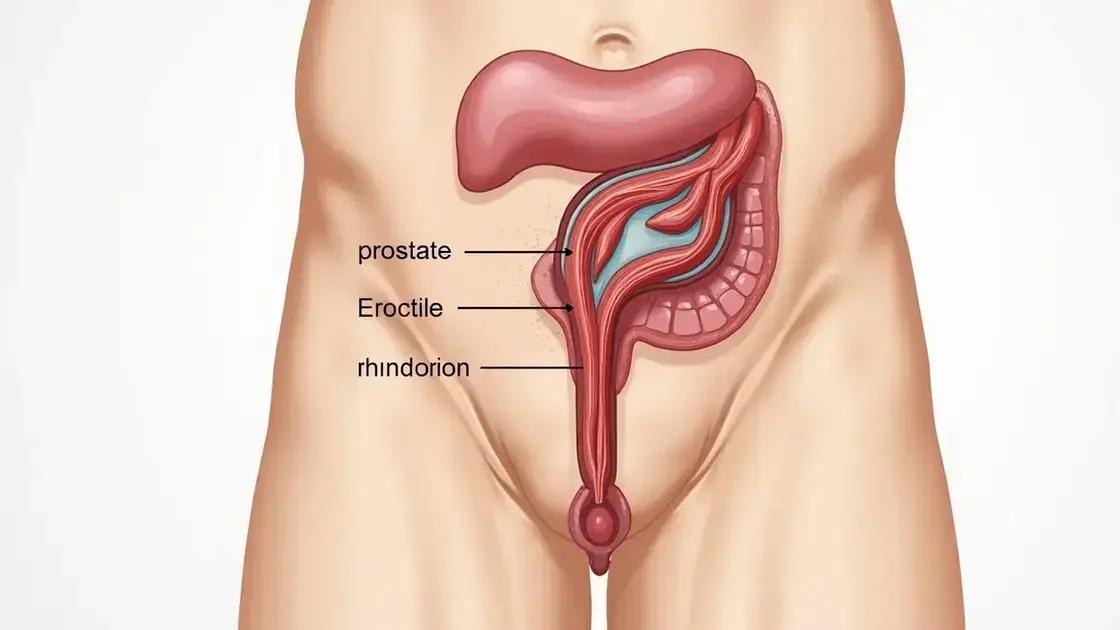
The connection between prostate health and erectile dysfunction (ED) is an important topic that affects many men. The prostate gland plays a crucial role in male reproductive health, and any issues with this gland can significantly impact sexual function. Prostate problems can lead to a variety of symptoms, including difficulty with erections.
One of the most common prostate conditions is benign prostatic hyperplasia (BPH), which is an enlargement of the prostate. BPH can obstruct the urethra, leading to urinary issues and affecting blood flow to the penis, which can contribute to erectile dysfunction.
The Prostate and Blood Flow
The prostate is located just below the bladder and surrounds the urethra. Its health is directly linked to blood flow in the pelvic area. When the prostate is enlarged or inflamed, it can compress blood vessels and nerves that are necessary for achieving an erection. This pressure can hinder the natural blood flow needed for an erection, making it difficult for men to maintain sexual arousal.
Prostate Cancer Treatments
Another link between prostate health and ED comes from treatments for prostate cancer. Procedures such as surgery or radiation therapy can impact erectile function. Surgery may affect nerves near the prostate that are crucial for erections. Similarly, radiation can cause damage or scarring, leading to a decrease in erectile function.
Hormonal Factors
The prostate is also involved in hormonal balances, particularly testosterone. Low testosterone levels can contribute to both prostate problems and ED. As men age, testosterone levels naturally decline, leading to an increased risk of both prostate issues and erectile dysfunction.
The Importance of Regular Check-ups
Regular check-ups and screenings are essential for maintaining prostate health. Men should discuss any changes in their sexual function with their healthcare provider. Early detection of prostate problems can lead to more effective treatments that can mitigate the risk of developing ED.
Common Causes of Erectile Dysfunction
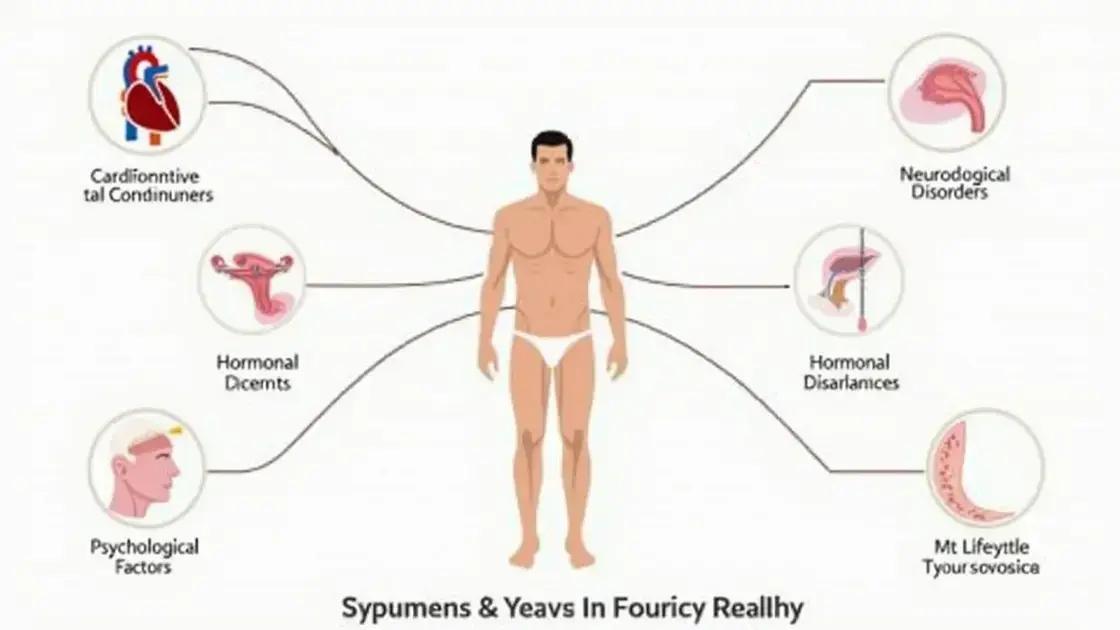
Erectile dysfunction (ED) can stem from a variety of causes, which can be broadly categorized into physical, psychological, and lifestyle factors. Understanding these common causes is essential for seeking appropriate treatment. Physical factors are often related to health conditions that affect blood flow or nerve function in the penis.
Cardiovascular diseases are one of the primary physical causes of ED. Conditions like high blood pressure, high cholesterol, and diabetes can damage blood vessels and reduce blood flow to the penis, making it difficult to achieve or sustain an erection.
Hormonal Imbalances
Hormonal imbalances, particularly low testosterone levels, can lead to erectile dysfunction. Testosterone plays a key role in sexual arousal and the ability to maintain erections. Age, certain medical conditions, and medications can contribute to decreased testosterone levels.
Neurological Disorders
Neurological disorders, such as Parkinson’s disease or multiple sclerosis, may impact the nerves that send signals from the brain to the penis. When these pathways are damaged, it can result in erectile dysfunction.
Psycho-Emotional Factors
Psycho-emotional factors also play a significant role in ED. Stress, anxiety, and depression can severely affect sexual performance and desire. Even unresolved relationship issues can contribute to feelings of inadequacy or fear that can impede erectile function.
Lifestyle Choices
Lifestyle choices such as smoking, excessive alcohol consumption, and lack of physical activity can further worsen erectile dysfunction. Smoking restricts blood flow to the penis, while heavy drinking can affect hormones and nerve functions. Engaging in regular exercise and maintaining a balanced diet can help improve overall health and potentially reduce ED symptoms.
Effective Treatments for ED
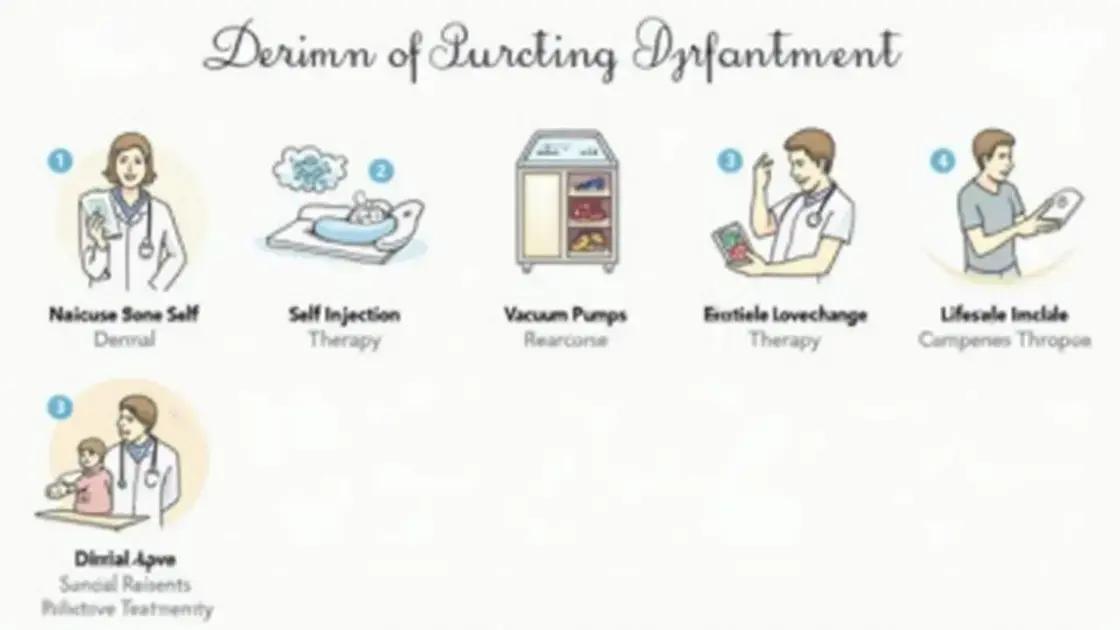
Effective treatments for erectile dysfunction (ED) can vary widely depending on the underlying causes. Men experiencing symptoms should consult a healthcare professional to determine the most suitable option. Medications are one of the most common treatments for ED. Phosphodiesterase type 5 (PDE5) inhibitors, such as Viagra, Cialis, and Levitra, work by increasing blood flow to the penis, making it easier to achieve an erection.
Self-Injections and Suppositories
Self-injection therapy involves using a fine needle to inject medication directly into the penis. This treatment can help produce an erection in about 5 to 20 minutes. Another method is the use of medicated suppositories that are inserted into the urethra to stimulate an erection.
Pumps and Devices
Pump devices are another option for men with ED. These vacuum devices create a vacuum around the penis, drawing blood into it and leading to an erection. Once an erection is achieved, a special ring is placed at the base of the penis to maintain the erection for intercourse.
Surgery
In some cases, surgical options may be considered. Pensile implants can be surgically placed to provide a rigid erection. This option is typically recommended for men who have not responded to other treatments and have no issues with blood flow in the pelvic region.
Psychotherapy
For those whose ED is linked to psychological factors such as stress, anxiety, or depression, psychotherapy or counseling can be very beneficial. Speaking to a mental health professional can help address and overcome the emotional barriers contributing to erectile dysfunction.
Lifestyle Changes
Making lifestyle changes is also crucial in managing ED. This includes maintaining a healthy diet, exercising regularly, quitting smoking, and moderating alcohol consumption. These changes can improve overall health and potentially enhance erectile function.
Lifestyle Changes to Improve Prostate Health
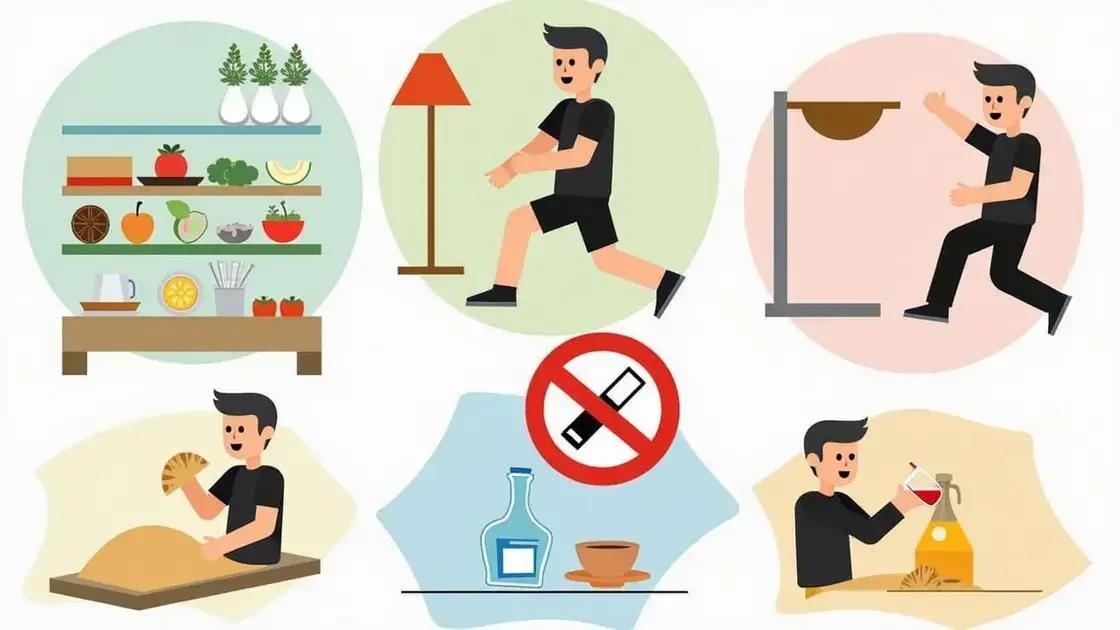
Making lifestyle changes is essential for improving prostate health and overall well-being. Here are several effective strategies that men can adopt:
1. Eat a Healthy Diet
A balanced diet rich in fruits, vegetables, whole grains, and lean proteins can support prostate health. Foods high in antioxidants, like tomatoes and berries, are particularly beneficial. Additionally, reducing red meat and processed foods can help lower the risk of prostate problems.
2. Stay Physically Active
Regular exercise can improve blood circulation and help maintain a healthy weight, both of which are important for prostate health. Aim for at least 30 minutes of moderate exercise most days of the week. Activities like walking, cycling, or swimming can be great options.
3. Maintain a Healthy Weight
Obesity can increase the risk of prostate issues, including cancer. Losing weight through a combination of diet and exercise can significantly reduce this risk. Keeping a healthy weight is not only beneficial for the prostate but also for overall health.
4. Limit Alcohol and Quit Smoking
Reducing alcohol consumption and quitting smoking are crucial lifestyle changes. Excessive drinking may impact prostate health negatively, while smoking is linked to numerous health issues, including increased risk of prostate cancer. Making these changes can lead to better health outcomes.
5. Regular Check-ups
Regular check-ups with a healthcare provider can help monitor prostate health. Early detection of any issues can significantly improve treatment outcomes. Discuss any changes in urinary habits or sexual function with your doctor.
6. Stay Hydrated
Staying hydrated by drinking plenty of water is important. Proper hydration can help maintain urinary function and promote overall health. Aim for a minimum of 8 cups of water a day.
In Summary: Enhancing Prostate Health and Managing ED
The interplay between erectile dysfunction (ED) and prostate health is significant and multifaceted. Understanding the causes of ED and its relationship with prostate conditions is crucial for men’s health.
Effective treatments for ED are available, ranging from medications and therapy to lifestyle changes that can improve overall prostate health. Adopting a nutritious diet, engaging in regular physical activity, maintaining a healthy weight, and avoiding harmful habits like smoking and excessive drinking are key components.
Regular medical check-ups can ensure early detection of any concerns, allowing for timely intervention. By taking proactive steps towards managing health, men can enhance their quality of life and reduce the risks associated with both ED and prostate issues.
Ultimately, prioritizing prostate health not only helps in managing ED but also contributes to a healthier, more fulfilling life.
FAQ – Frequently Asked Questions About Erectile Dysfunction and Prostate Health
What is erectile dysfunction (ED)?
Erectile dysfunction (ED) is the inability to achieve or maintain an erection sufficient for satisfactory sexual performance.
How does prostate health affect erectile dysfunction?
Prostate health is closely linked to erectile function. Conditions like benign prostatic hyperplasia (BPH) or prostate cancer can lead to ED.
What are common causes of erectile dysfunction?
Common causes include cardiovascular diseases, hormonal imbalances, neurological disorders, and psychological factors like stress and anxiety.
What treatments are available for erectile dysfunction?
Effective treatments include medications (like PDE5 inhibitors), self-injection therapy, vacuum pumps, and lifestyle changes such as diet and exercise.
What lifestyle changes can improve prostate health?
To improve prostate health, maintain a healthy diet, stay physically active, keep a healthy weight, limit alcohol, quit smoking, and stay hydrated.
Why are regular check-ups important for prostate health?
Regular check-ups can help detect any issues early, allowing for timely treatment and better management of prostate health.

